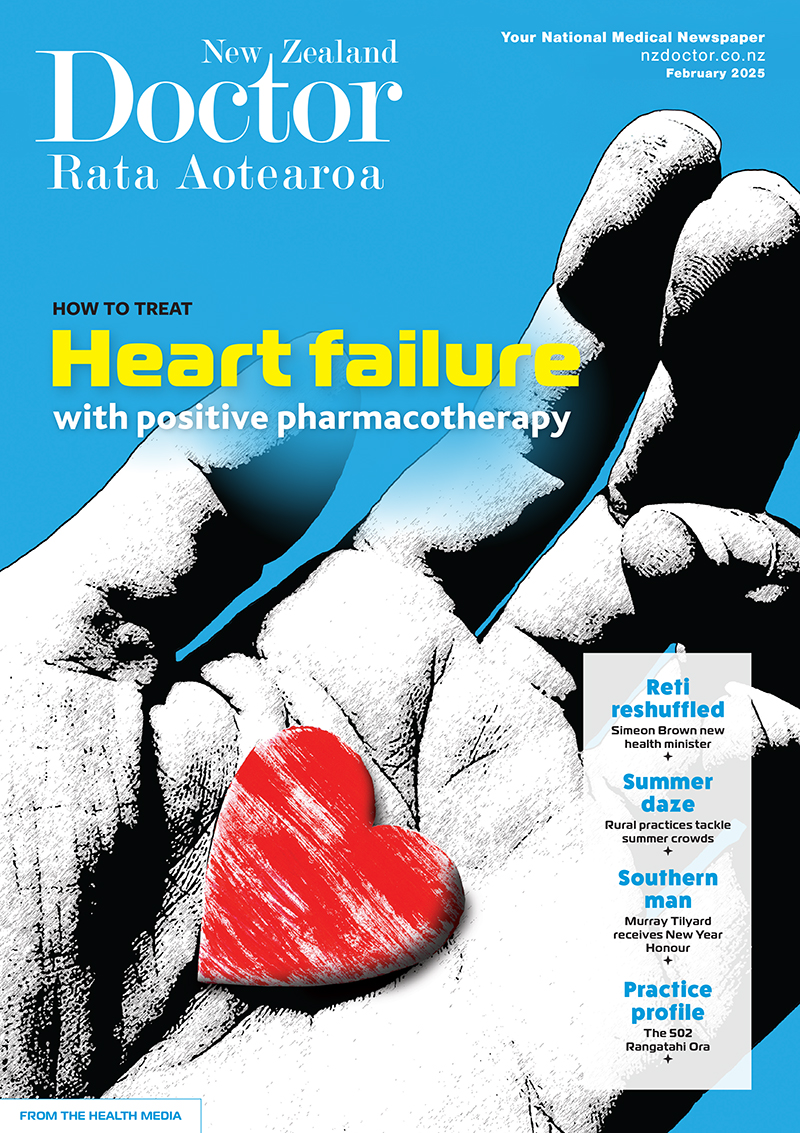Pharmacist prescribers Linda Bryant and Leanne Te Karu discuss positive polypharmacy for heart failure. Current evidence shows the intensive implementation of four medications offers the greatest benefit to most patients with heart failure, with significant reductions in cardiovascular mortality, heart failure hospitalisations and all-cause mortality
RANZCR joins CPMC in calling for consistent standards in specialist care across Australia
RANZCR joins CPMC in calling for consistent standards in specialist care across Australia

Ahead of the Health Ministers' Meeting on 6 December 2024, the Royal Australian and New Zealand College of Radiologists (RANZCR) is raising significant concerns about the potential risks of fast-tracking the registration of Specialist International Medical Graduates (SIMGs).
RANZCR believes that the proposed changes could lead to a healthcare system divided by post code, where the level of specialist care Australians receive is dependent on where they live.
"While we acknowledge the essential role that International Medical Graduates (IMGs) play in supporting our healthcare system, RANZCR shares the concerns expressed by the Council of Presidents of Medical Colleges (CPMC) regarding the current proposals," said Clinical Professor John Slavotinek, President of RANZCR. "By rushing registration processes and introducing different standards for various regions, we risk creating disparities in care, with some Australians receiving a lower standard of specialist care than others, simply because of their location."
RANZCR reaffirms several key issues with the proposed changes to SIMG registration, as outlined by CPMC, such as:
- Reduced oversight and supervision of new international specialists, which may compromise patient safety.
- Accelerated assessment processes that may not fully assess clinical skills and abilities before practitioners begin working.
- Inconsistent supervision and oversight in regional areas, where specialists may face greater challenges in their practice due to isolation.
- Inadequate support for SIMGs in regional placements, which could lead to burnout and challenges in retention.
- Unclear professional development frameworks, which are vital for maintaining high standards in medical practice.
- Absence of strategies to ensure SIMGs are deployed to areas most in need of workforce support.
"International specialists have always been a vital part of our healthcare system, and they deserve pathways that provide both the support and evaluation they need to deliver high-quality care," said Clinical Professor John Slavotinek.
"Fast-tracking their registration without proper safeguards does a disservice to the communities they serve, the overseas specialists themselves, and the overall healthcare system."
In partnership with CPMC, RANZCR is calling on Health Ministers to consider several key actions, including:
- preserving consistent specialist registration standards nationwide while improving the efficiency of assessment processes,
- ensuring adequate supervision and support systems for SIMGs, particularly in regional and rural placements and
- implementing clear frameworks for scope of practice and ongoing professional development.
Additionally, RANZCR advocates for the development of comprehensive quality assurance mechanisms to ensure patient safety and consistent clinical standards of medical practice, as well as strengthening initiatives to direct specialists to areas facing genuine workforce shortages, without compromising quality of care.
RANZCR, in partnership with CPMC, is committed to working with state and federal governments to address workforce challenges in regional areas without compromising clinical quality. Proposed solutions include enhanced mentoring and support systems for SIMGs, streamlined yet rigorous assessment pathways, better integration into existing specialist networks, and structured professional development programs to ensure continuous learning and high standards.
RANZCR urges Health Ministers to carefully consider these concerns during their meeting on 6 December and remains committed to collaborating with government stakeholders to implement solutions that enhance access to specialist care while maintaining the high standards of the Australian healthcare system.



